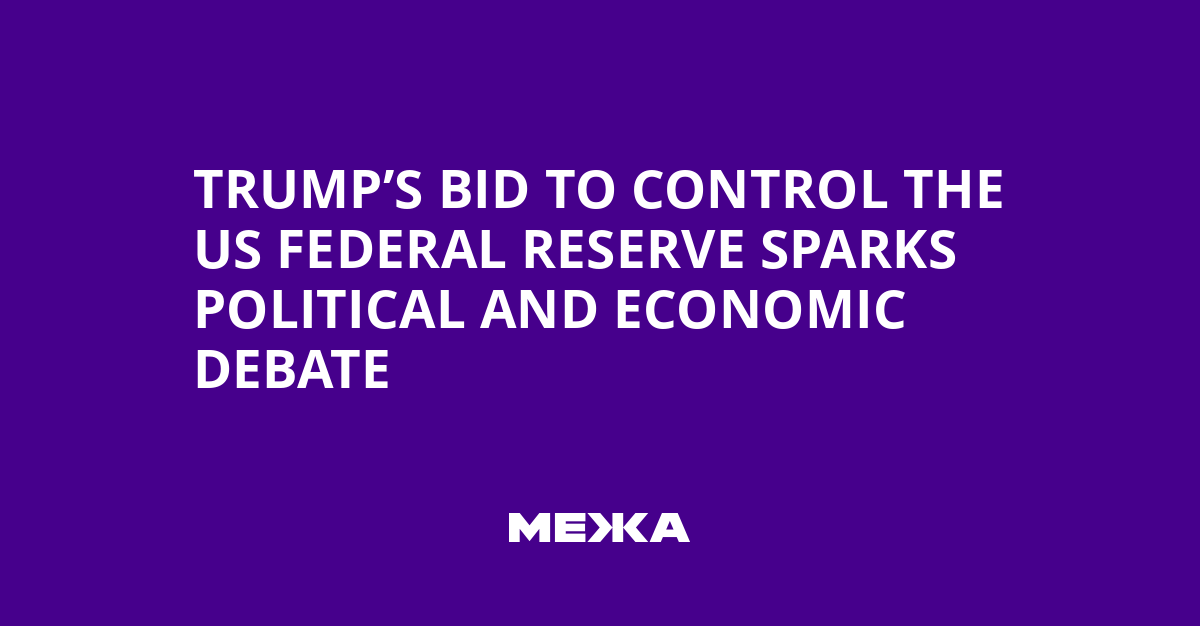When talking about the chaos surrounding the Federal Reserve, the main thing to understand is this: Donald Trump seeks to grant himself significant control over the historically independent central bank of the United States. It is this idea that lies at the heart of discussions heard in financial and political circles, while other details merely underscore it.
There are various narratives around the Fed, but all of them return to one thing: Trump’s desire to have a decisive say in the bank. He cannot simply walk inside and replace leadership at will – the legal mechanisms for removing Fed Chair Jerome Powell do not allow that to happen immediately. Therefore his team is seeking other avenues of influence, including through shaping public discussions and highlighting topics related to costs and regulatory policy.
One of the key figures in this story was Lisa Cook – appointed by Biden in 2022 as a member of the Fed’s Board of Governors. If Trump can push through a replacement with a more loyal candidate, he could gain a majority on the board, changing the bank’s decision-making dynamics. Such changes are viewed as a test of the regulator’s independence and its ability to keep the economy insulated from political influence.
“Mortgage lending fraud is our top priority,” he said earlier this week on Fox Business. On Thursday he confirmed this on CNBC, adding: “Public officials should not be deprived of vigilance.”
– Bill Pult
On Thursday, Trump moved closer to his goal. At the same time, while Steven Miran, the Trump-picked candidate for a separate seat on the Fed, was testifying, the Department of Justice, according to reports, opened a criminal investigation into Cook at the behest of Pult. Trump and his allies contend that she lied in mortgage documents before her tenure at the Fed – allegations she denies.
“If this is something that lawyers publish… or under criminal referrals, I will not comment. If things become public… or we decide to make them public, then I will speak.”
– Bill Pult
According to investigative materials, at least three members of the U.S. Cabinet listed more than one property in their mortgage documents as the “primary residence.” However, these cases do not necessarily indicate specific financial misconduct – they underscore that between Trump, his advisers, and certain institutions a fierce competition for control of the Fed is playing out.
“Dr. Miran, you have clearly made it understood that you will do or say anything Donald Trump wants,” said Senator Elizabeth Warren of Massachusetts, Democratic Ranking Member of the committee. “That may be a suitable place for political appointees, but it undercuts the Fed’s independence and will make Americans’ lives significantly more expensive.”
– Senator Elizabeth Warren
After such events it becomes clear that attempts to seize control of the Fed through changes to the Board or through appointments have only a short-term political effect. Yet for the U.S. economy this could mean long-term challenges: eroding trust in the regulator, potentially higher inflation risks, and higher borrowing costs. The Fed’s independence is not merely ceremonial, but a fundamental mechanism of financial system stability that balances supporting employment with keeping inflation in check.
History offers a number of lessons: attempts to influence the central bank through politically motivated staffing decisions can lead to instability, market volatility, and increased risk for consumers. Therefore preserving the regulator’s independence remains one of the key barriers against unstable political impulses in the U.S. financial system.
Conclusion
As long as legal and political mechanisms remain on the Fed’s side, the question of the central bank’s independence will continue to be one of the hottest topics in macroeconomic discussions. For the U.S. economy, it is important to maintain a balance between political pressure and financial discipline to avoid short-term gains that could turn into long-term losses for investors, workers, and consumers.
